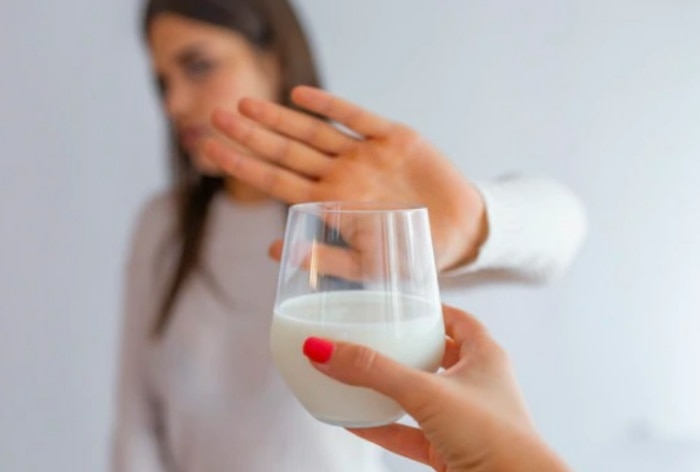Milk is a wholesome food, rich in proteins, vitamins and minerals. But should it be consumed if one is suffering from diabetes? Here’s what to know

India is unfortunately known as the ‘Diabetic Capital’ of the world, with more than 77 million people suffering from this Non-Communicable Disease. Diabetes is a chronic metabolic disorder that prevents the body from utilizing glucose completely or partially. It is characterized by raised blood glucose levels and changes in metabolism of carbohydrate, protein and fat. This happens due to abnormality in insulin secretion or insulin action. Increasing urbanization, intake of high calorie and highly refined-low fiber foods, sedentary habits and increasing prevalence of overweight are primarily responsible for high prevalence of diabetes in India.
According to the WHO, 80% diabetes can be prevented just by eating healthy, being physically active and avoiding tobacco and alcohol.
Essential Diet Tips For Diabetics
When it comes to dietary modifications for diabetics, here are some important considerations:
1. To Have Regular and Uniform Meals – This is especially important if he/she is on insulin or oral antidiabetic drugs. Eating less than usual, delay in taking meals or omission of meals are common causes of hypoglycemia (Low blood glucose levels).
2. To Distribute the Carbs in each meal – Since the blood sugar level depends mainly on the intake of carbohydrates it is important to distribute the carbs in accordance with the individual’s daily needs. Hence, having a meal which has complex carbs (whole grains, pulses, millets) along with fibre rich foods like veggies will help in slow blood glucose rise.
3. To go for low Glycemic Index foods – Glycemic index indicates the blood sugar raising effect of a food compared to that of reference food (glucose which has a GI of 100). Thus, it is basically a numerical system of measuring how fast a carbohydrate triggers a rise in circulating blood sugar- higher the number, the faster the blood sugar response. Hence, those foods which have a low GI (55 and below) are considered safe for diabetics. Foods with a high GI (above 70) lead to a rapid rise in blood glucose levels and hence should be avoided.
Does Milk Fit Into The Above Criteria For Diabetics?
There are several benefits of consuming milk and milk products:
- It aids in growth and development as it is a rich source of essential vitamins and minerals like calcium, phosphorus, riboflavin and vitamin B12.
- Milk plays a pivotal role in building bone health and density. Those who consume milk regularly have decreased risks of osteoporosis (drastic fall in bone density) which is commonly seen in diabetic patients.
- Its consumption has also been associated with reduced blood pressure, cardio vascular diseases and bowel cancer.
Further, a lot of research indicates that increased dairy consumption has been linked to a lower risk of T2DM (Type 2 Diabetes Mellitus). This is largely attributed to the milk proteins, which increase the postprandial insulin response and lower the postprandial blood glucose response in both healthy subjects and patients with diabetes.
However, as milk contains Lactose (milk sugar), this carbohydrate needs to be counted as part of the total carbs budget of the day. Cow’s milk contains around 5gm carbs/100ml whereas buffalo’s milk contains around 8gm carbs/100ml milk. This amount should not be missed while counting your carbs at each meal if milk or any milk product is part of the meal.
One should also note that the GI of milk and curd is much less than other carb rich sources. It is between 31-37 depending on the type of milk. Such low GI foods do not lead to a blood glucose spike after consumption. Keep this in mind though that one should avoid flavoured milk or sweetened milk which would contain high amounts of sugar and raise the blood sugar levels.
As per the NIN guidelines, an adult should have 300ml of milk / milk product everyday. A diabetic can also have the same, however the type of milk (cow milk, buffalo milk, skimmed milk, whole milk) should depend on whether the person is in need of more fat and calories or is on a weight loss diet and requires only good proteins from the milk.
Key Takeaways:
- Milk is a wholesome food, rich in proteins, vitamins and minerals.
- It provides many health benefits and hence should be part of a diabetic meal.
- However, though it is a low GI food and the proteins help in slower release of glucose in the blood, it is advisable to count the carbs obtained from milk and other dairy while calculating the total carbs during each meal.
(Inputs: Dr. Meghana Pasi, Nutrition Consultant, MyThali, Arogya World)
Stay connected with us on social media platform for instant update click here to join our Twitter, & Facebook
We are now on Telegram. Click here to join our channel (@TechiUpdate) and stay updated with the latest Technology headlines.
For all the latest Lifestyle News Click Here
